第206章 CHAPTER THE FORTY-EIGHTH. THE PLACE.(1)
EARLY in the present century it was generally reported among the neighbors of one Reuben Limbrick that he was in a fair way to make a comfortable little fortune by dealing in Salt.
His place of abode was in Staffordshire, on a morsel of freehold land of his own--appropriately called Salt Patch. Without being absolutely a miser, he lived in the humblest manner, saw very little company; skillfully invested his money; and persisted in remaining a single man.
Toward eighteen hundred and forty he first felt the approach of the chronic malady which ultimately terminated his life. After trying what the medical men of his own locality could do for him, with very poor success, he met by accident with a doctor living in the western suburbs of London, who thoroughly understood his complaint. After some journeying backward and forward to consult this gentleman, he decided on retiring from business, and on taking up his abode within an easy distance of his medical man.
Finding a piece of freehold land to be sold in the neighborhood of Fulham, he bought it, and had a cottage residence built on it, under his own directions. He surrounded the whole--being a man singularly jealous of any intrusion on his retirement, or of any chance observation of his ways and habits--with a high wall, which cost a large sum of money, and which was rightly considered a dismal and hideous object by the neighbors. When the new residence was completed, he called it after the name of the place in Staffordshire where he had made his money, and where he had lived during the happiest period of his life. His relatives, failing to understand that a question of sentiment was involved in this proceeding, appealed to hard facts, and reminded him that there were no salt mines in the neighborhood. Reuben Limbrick answered, "So much the worse for the neighborhood"--and persisted in calling his property, "Salt Patch."
The cottage was so small that it looked quite lost in the large garden all round it. There was a ground-floor and a floor above it--and that was all.
On either side of the passage, on the lower floor, were two rooms. At the right-hand side, on entering by the front-door, there was a kitchen, with its outhouses attached. The room next to the kitchen looked into the garden. In Reuben Limbrick's time it was called the study and contained a small collection of books and a large store of fishing-tackle. On the left-hand side of the passage there was a drawing-room situated at the back of the house, and communicating with a dining-room in the front. On the upper floor there were five bedrooms--two on one side of the passage, corresponding in size with the dining-room and the drawing-room below, but not opening into each other; three on the other side of the passage, consisting of one larger room in front, and of two small rooms at the back. All these were solidly and completely furnished. Money had not been spared, and workmanship had not been stinted. It was all substantial--and, up stairs and down stairs, it was all ugly.